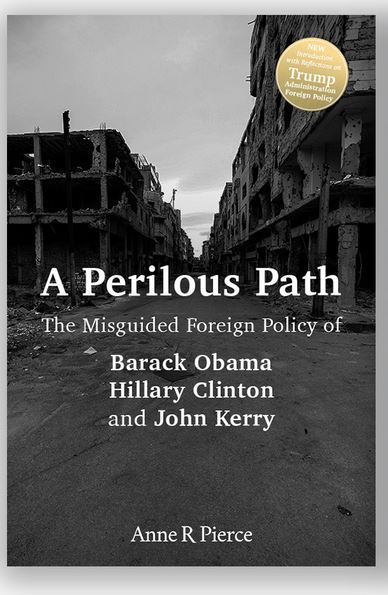The Obama administration is playing an impossible game of catch-up. Having degraded America’s defenses and alliances, deemphasized America’s democratic principles and priorities, and delayed taking responsibility, it finds itself in a world so dangerous and hostile that it has no choice but to respond. With the world, in former Secretary of Defense Chuck Hagel’s own words, “exploding all over,” the administration has been reassessing its policies of retrenchment. But the return to deterrence is flawed, for the ends are muddled; the means are inadequate; and the will is hardly there.
It’s one thing to reemphasize national security while resolving to do what it takes. It’s another to do so in incremental and equivocal fashion. It’s one thing to increase military aid to NATO and other defense organizations with the clear goal of defending the free world. It’s another to support NATO countries while “partnering” with the very powers that threaten them, and obstructing NATO membership for countries that are threatened the most. It’s one thing to send more troops and artillery to Syria and Iraq. It’s another to do so while enabling the Syrian, Russian and Iranian regimes, imposing prohibitive rules of engagement on the war with ISIS, and defining that war in ways that alienate Muslim moderates and Christians. It’s one thing to rebalance toward Asia in order to offset Chinese aggression. It’s another to do so while downplaying the horrors of communist-totalitarian North Korea, and insufficiently “rebuilding” with Asian allies. It’s one thing to stress intolerance of WMD proliferation. It’s another to do so while pushing an indulgent interpretation of a generous nuclear deal with Iran, and ignoring the recommendations of generals for additional missile defenses against North Korea.
Serious deterrence doesn’t cohere with the Obama foreign policy team’s worldview. In that view, the United States historically placed too much emphasis on its own democratic principles and way of life, failed to accommodate other cultures and political systems, and was “arrogant” in the use of power. Indeed, the United States over-emphasized power itself, pouring too much money into military defense, military alliances, and nuclear weapons; a country as powerful as ours had the luxury of taking the unilateral lead in disarmament. President Obama and Secretary of State Hillary Clinton called for a “reset” in relations with potential enemies, for downplaying differences between democracies and non-democratic states, and for embracing diplomacy, engagement and compromise as the best tools for dealing with extreme regimes such as North Korea, Syria, and Iran. They envisioned a “smarter” foreign policy that would see the United States as one power among many, and that would rely more on international institutions for direction. They found “common interests” with adversaries, and showed willingness to overlook their abysmal human rights records in order to do so.
In thereby advocating a retraction and softening of American power and democratic leadership, Obama officials drew upon the American public’s own war-weary preconceptions. Since the Iraq War, many, if not most, Americans have succumbed to the either-or assumption that either we refrain from an active foreign policy or we’ll end up with “boots on the ground.” They recoil from attempts to influence events and ideas in dangerous parts of the world, fearing that influence will translate into military involvement. Yet, World War II taught that war is even more likely when democratic nations bury their heads in the sand and retreat from the world stage. Scaling down defenses and doing nothing to defend democratic principles allows the escalation of atrocities, weapons programs, and hostilities, and only increases the chance that we’ll be forced into war by events spiraling out of control. The United States incorporated this lesson into successful Cold War policies, vowing “never again” to be morally and strategically complacent.
With wars, violence, atrocities and global instability approaching a new tipping point, we seem unwilling, however, to learn the lesson again. Yes, the Obama administration is reassessing some of its patterns of retrenchment, but it is doing so with inadequate means and skewed priorities. Acts of strength are offset by displays of weakness. Attempts to reassure America’s allies are offset by prevarication. The operative word is “some.” The Obama administration is making some adjustments to its foreign policy approach, but not enough to deal with the challenges we face.
Continue reading the complete article on Providence, posted June 21, 2016.


